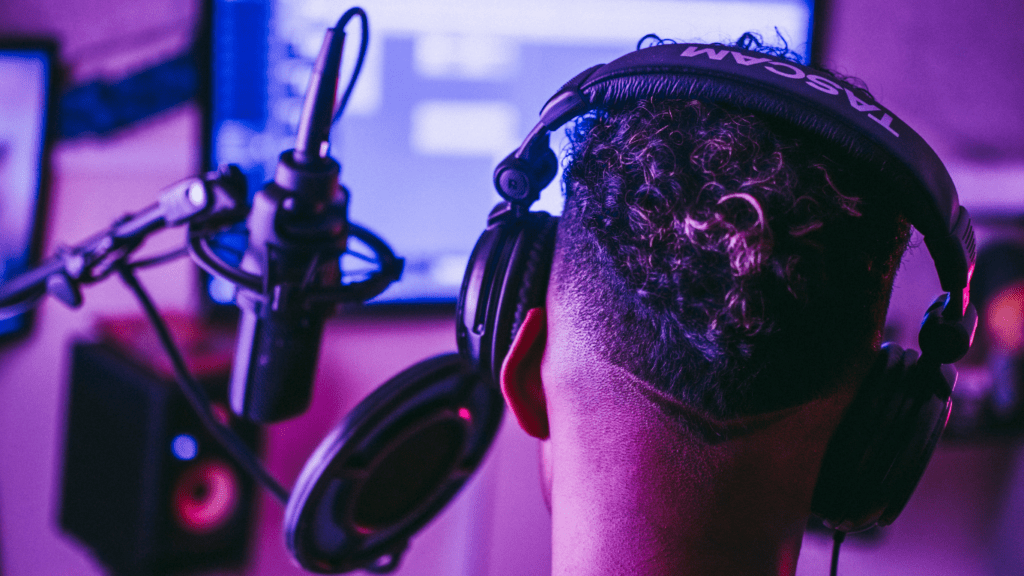Understanding NFTs in the Music Industry
Music NFTs, or Non-Fungible Tokens, are transforming how artists monetize their work by leveraging blockchain technology.
What Are Music NFTs?
Music NFTs represent ownership of a unique digital music asset stored on a blockchain. Unlike traditional files, these tokens cannot be replicated, making them one-of-a-kind.
Artists can sell songs, albums, or exclusive content directly to fans. For example, Kings of Leon made headlines in 2021 by releasing an album as an NFT, offering exclusive artwork and unique live-show perks to token holders.
The Rise of NFTs in Music
Artists increasingly explore NFTs to gain more control and profit from their work. NFTs eliminate intermediaries, like record labels, allowing artists to directly monetize their content.
For instance, in March 2021, electronic musician 3LAU sold a collection of music NFTs for over $11 million. High-profile sales like these highlight the growing adoption and potential profitability of NFTs in the music industry.
Benefits of Music NFTs for Artists

Music NFTs provide artists with innovative ways to monetize their work, enhancing their overall revenue and fan engagement.
Direct Revenue from Sales
Music NFTs generate direct revenue from sales. Artists can sell their music, concert tickets, and exclusive merchandise as NFTs.
This removes intermediaries like record labels, leading to higher profits. In 2021, 3LAU earned over $11 million from selling music NFTs. Such direct sales create a more lucrative income stream.
Building a Loyal Fanbase
Music NFTs help build a loyal fanbase. Fans gain access to exclusive content, such as limited-edition albums or personalized experiences, by owning NFTs.
This special access fosters a sense of community and loyalty. For example, Kings of Leon offered special perks to NFT holders, strengthening their fan engagement. By providing unique experiences, artists can cultivate deeper connections with their supporters.
Challenges and Considerations
Navigating the world of Music NFTs presents several challenges artists must consider. Legal and financial aspects are crucial, demanding a thorough understanding to maximize benefits while mitigating risks.
Legal Implications
Understanding legal frameworks around Music NFTs proves essential. Licensing agreements, intellectual property rights, and copyright issues require careful scrutiny.
Artists must ensure they have clear rights to the content they tokenize. Unauthorized use of samples or compositions can lead to legal disputes.
Collaborations involving multiple parties demand explicit contracts. Defining royalty splits and usage rights in contracts helps avoid conflicts. The legal landscape of NFTs remains largely unregulated, creating uncertainties. Consulting legal experts can safeguard artist interests.
Market Volatility and Value Assessment
Music NFTs are subject to market fluctuations. The value of NFTs can change rapidly, influenced by trends and demand. Assessing the long-term value of NFTs is difficult due to the nascent market. Artists must prepare for potential devaluation.
Pricing strategies require consideration. Overpricing can deter buyers while underpricing may undervalue the work. Monitoring comparable NFT sales and market trends provides insights. Artists should stay informed about cryptocurrency market trends as it impacts NFT value.
Artists need awareness of additional costs. Minting NFTs and transaction fees on blockchain platforms can be substantial. Balancing these costs against projected revenue ensures sustainable profitability.
Case Studies: Artists Successfully Using Music NFTs
Many artists are transforming their careers with Music NFTs. Some notable cases illustrate varied approaches and success stories.
Major Artists Entering The NFT Space
Several high-profile artists have embraced NFTs.
- Kings of Leon released their “When You See Yourself” album as an NFT, generating over $2 million in sales. This move provided fans with exclusive content, such as limited-edition vinyl and front-row concert seats.
- DJ 3LAU’s venture into NFTs is another success. 3LAU auctioned 33 NFTs tied to his album “Ultraviolet,” earning over $11 million. Each token offered unique experiences, like unreleased music and private performances.
- Grimes also dipped into the NFT realm, selling digital art and music for over $6 million in under 20 minutes. These cases show how major artists can capitalize on the exclusivity and direct-to-fan interaction NFTs offer.
Independent Artists Leveraging NFTs
Independent artists are finding innovative ways to use NFTs for financial support and creative freedom. RAC, an independent musician, released his album “BOY” as an NFT. This effort earned significant revenue while granting fans access to exclusive content and direct engagement opportunities.
Electronic artist Imogen Heap utilized NFTs to sell exclusive music and art, raising funds to support her projects. NFTs empowered her to share creative works without relying on traditional music distribution channels.
Breakdancer and music producer Latasha Alcindor minted NFTs to include:
- music
- art
- exclusive behind-the-scenes content.
This approach diversified her revenue stream and deepened her connection with fans.
Independent artists leveraging NFTs demonstrate the democratization of music distribution and the potential for sustainable self-support through direct fan engagement.






